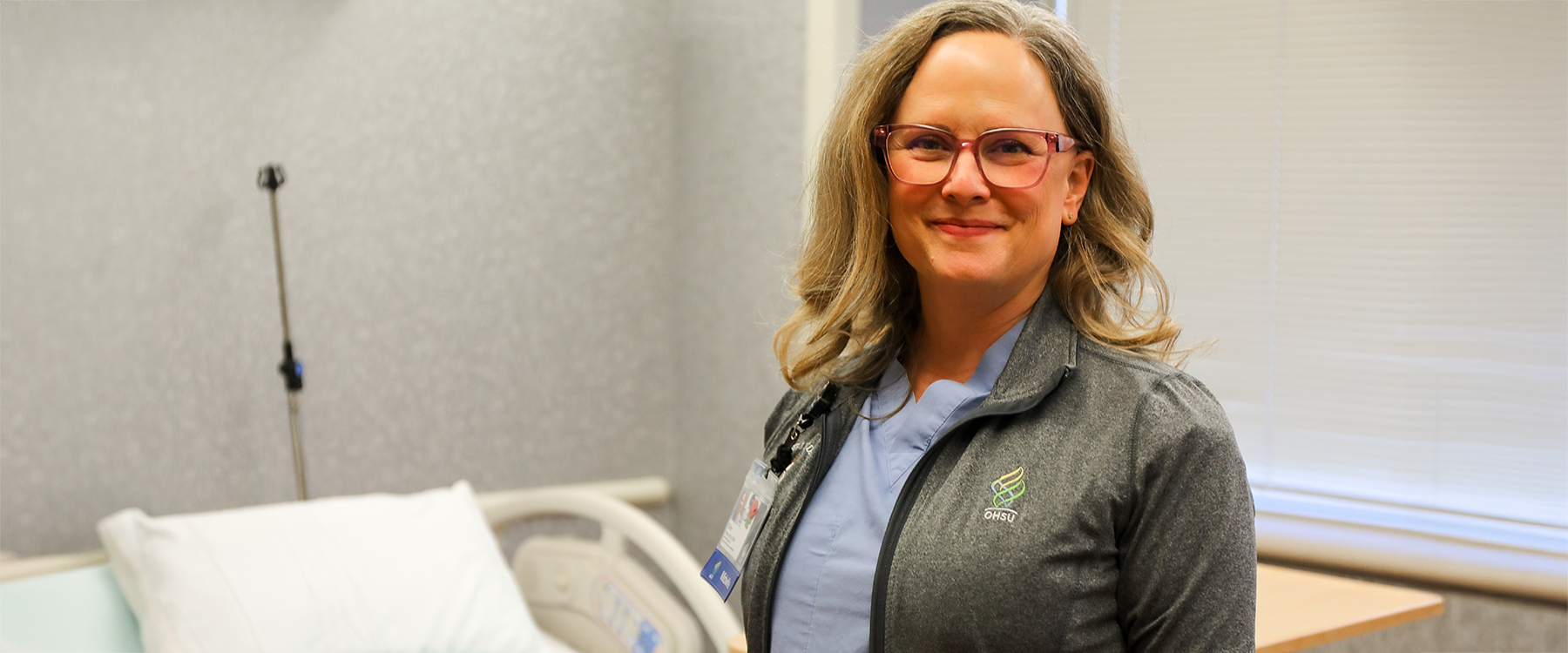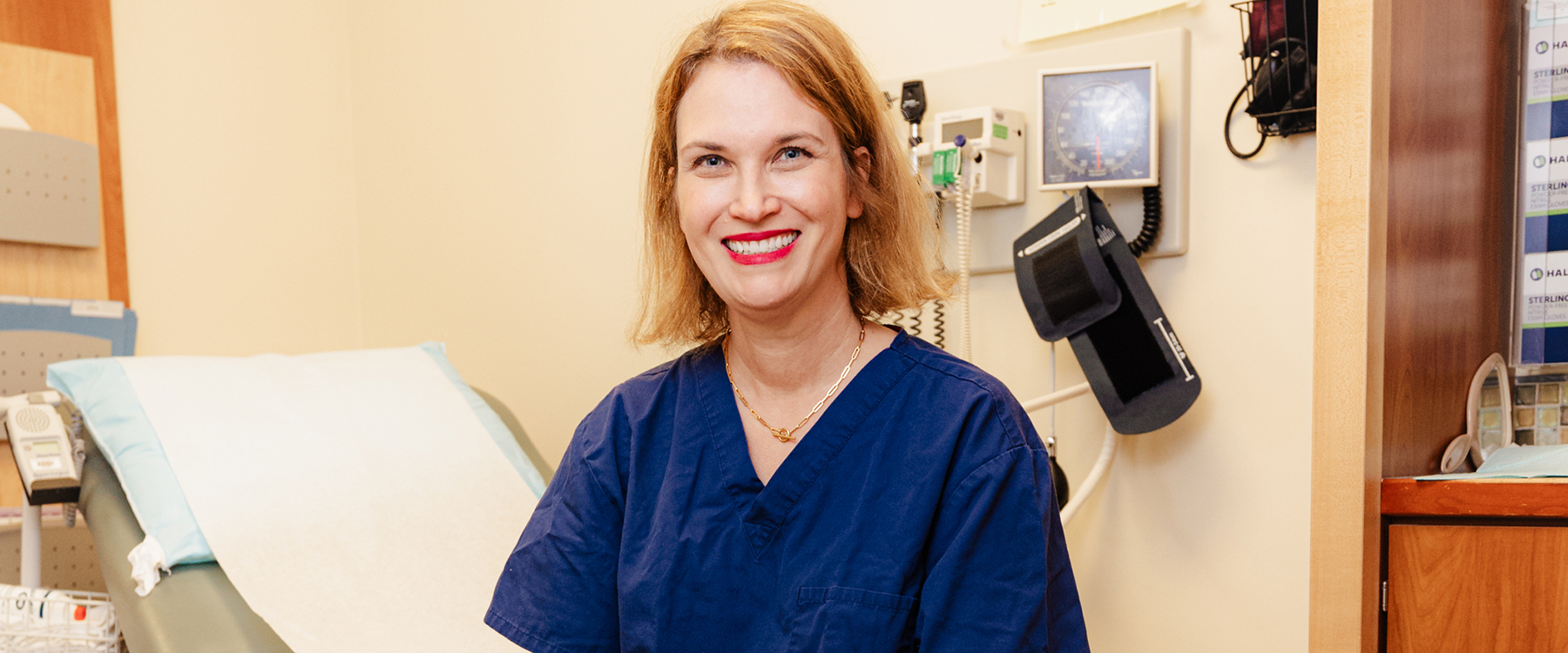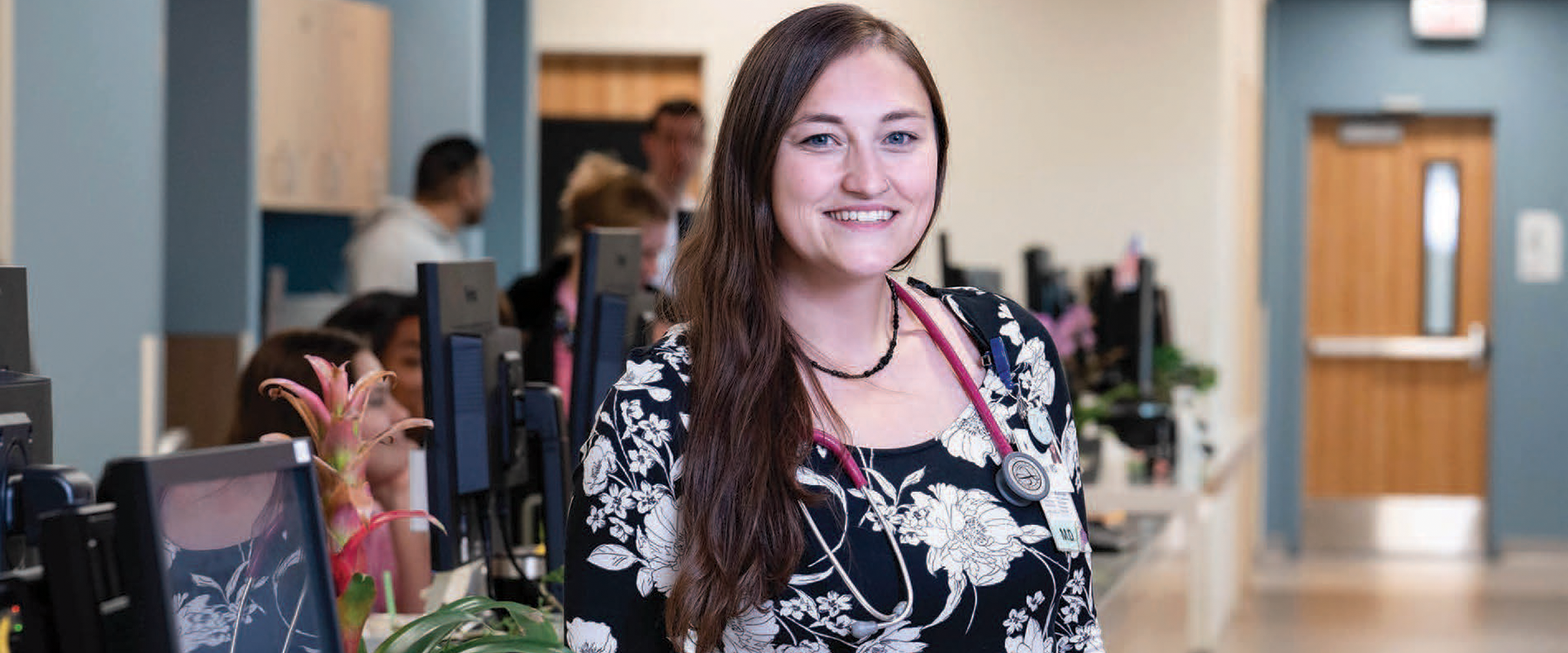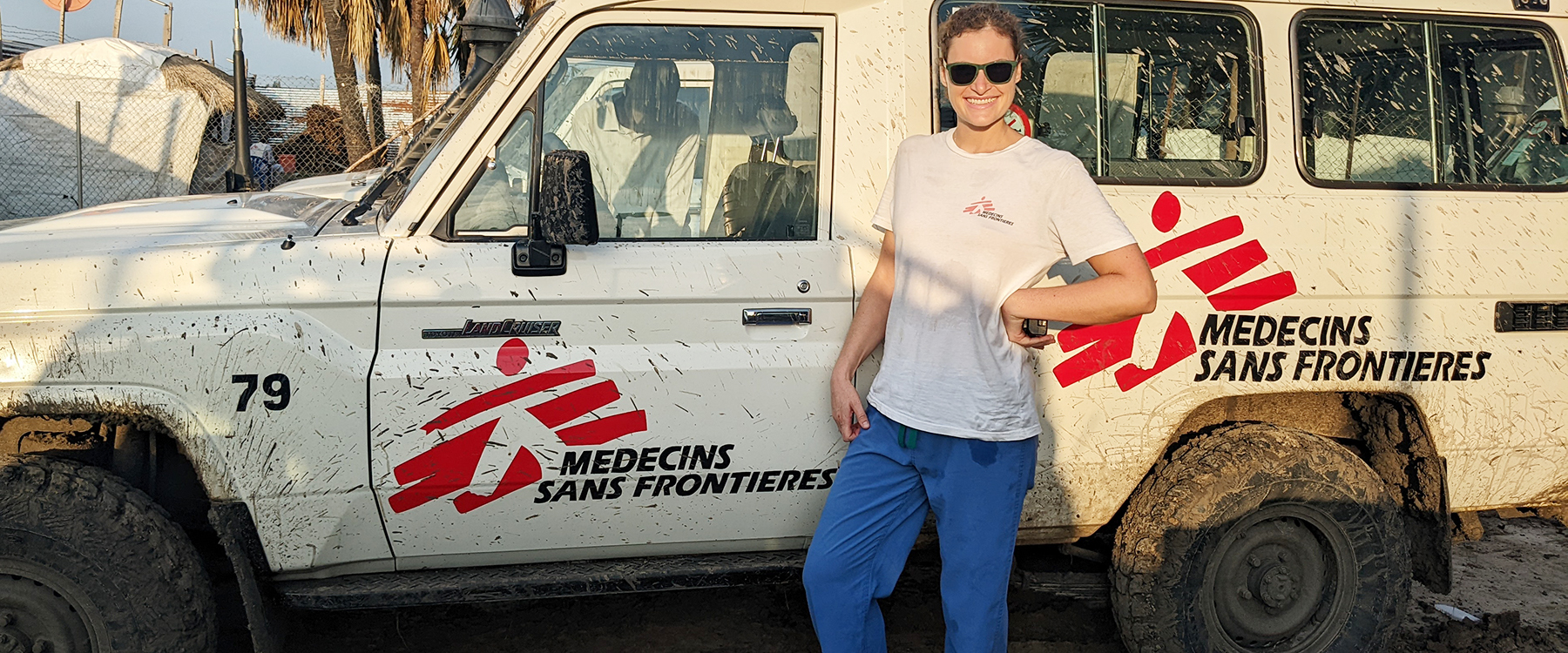For nearly 24 years, Ellen Tilden, Ph.D. ’15, CNM, has had a heart for people who give birth, caring for patients during pregnancy, birth, and postpartum and researching maternal morbidity and mortality.
“I’m a clinical scientist,” says Tilden, associate professor of nurse-midwifery with the OHSU School of Nursing and obstetrics and gynecology with the OHSU School of Medicine. “I came to this work because I love my patients. I want to think creatively about what can be done to improve their care.”
Maternal mortality rates in the U.S. are increasing rapidly: 32.9 maternal deaths per 100,000 live births, according to a 2021 report released by the Centers for Disease Control and Prevention. This statistic places U.S. maternal deaths at more than 10 times the estimated rates of some other high-income countries, including Australia, Austria, Israel, Japan and Spain.
“It is shocking how high our mortality rates are for people bearing children within the U.S. health care system. We need solutions now.”
Ellen Tilden, Ph.D. ’15, CNM
As early as 2018, Tilden had already begun examining state reports tracking the cause of maternal deaths in Oregon during and after pregnancy. She discovered a high rate of maternal deaths resulting from self-harm, such as suicide and overdose, linked to depression and other mental health issues. She found comparable numbers and causes of maternal deaths when she expanded her research to include other states.
Under existing care models, maternal checkups in the U.S. focus on measuring the growth of the fetus and detecting health concerns such as preeclampsia or diabetes, but do not routinely assess mental health. Research indicates that nearly 1 in 4 individuals suffer from mental health disorders during or after pregnancy.
“I feel like what we’ve been doing routinely doesn’t reach the people who need it the most,” Tilden says. “We need mental health solutions now.”
Enter Center M
In 2020, Tilden and her team began the pilot phase of a new program called Center M. At its core, the program provides mental health support for pregnant and postpartum patients, primarily using mindfulness-based cognitive behavior therapies.
The service is modeled after a highly successful intervention treatment called mindfulness cognitive behavior therapy for pregnancy (MBCT-PD) that reduces the risk of perinatal depression by 75%.
While MBCT-PD intervention has proven effective in clinical trials, clinics are not adopting it, citing cost, ease, access and a lack of appeal for diverse patient populations. Tilden and her colleagues in the OHSU psychology, obstetrics, family practice, women’s health, nurse-midwifery and health equity departments conducted joint research and pilot studies focused on modifying MBCT-PD. Their goal: to make the intervention affordable for clinics and more appealing for patients. Center M is the culmination of their efforts, with Tilden serving as the chief scientific officer.
“The School of Nursing had the right people,” she says. “I had wonderful mentorship and a committee who really guided me. It was a program that gave me the freedom to focus on what I deeply care about, despite those topics not being fundable when I launched my research.”
“We are a broad community working together, bringing diverse knowledge, effort and energy to solve this. Our goal is that within a year, Center M is available throughout all of Oregon.”
Ellen Tilden, Ph.D. ’15, CNM
Center M enlists the care of social workers trained in mental health, who are more likely to already be staff members of prenatal clinics, rather than enlisting the services of psychologists or psychiatrists. Center M group meetings enable a hybrid option through use of telehealth technology. To make mindfulness-based cognitive behavioral therapy (CBT) more accessible, Center M requires patients to spend less time in group meetings: groups consisting of three to five patients attend four, one-hour sessions. Further support is made accessible to participants through a digital smartphone app that delivers content designed to help patients practice skill-building between group sessions. Screenings for depression are built into the app.
“While we are testing the model to prove that it works, we focus on sustainability,” Tilden says. “Our team continually asks, ‘Is this something that a clinic can easily implement and afford to maintain?’”
Initial feedback on Center M has been positive. Participants in the early-phase study who completed the four group sessions and practiced skills using the app between sessions significantly increased mindfulness and emotional regulation when compared with pre-intervention status. They also experienced significantly fewer depression symptoms post-intervention, extending into the postpartum period. Tilden’s team ran focus groups at the conclusion of the study to assess participant experience and participants expressed enjoyment at learning mindfulness and CBT skills. Many recommended the program to their friends.
Center M is currently partnering with several public health leaders from OHSU Family Medicine, the Oregon Health Authority, HealthShare, CareOregon, Providence Beginnings and the Multnomah County Healthy Birth Initiative to expand access to the program. They are also in the process of launching Center M within several rural Oregon prenatal care clinics and seeking support to develop and test a Spanish-language version of the intervention.
“It is shocking how high our mortality rates are for people bearing children within the U.S. health care system. We need solutions now,” Tilden says. “We are a broad community working together, bringing diverse knowledge, effort and energy to solve this. Our goal is that within a year, Center M is available throughout all of Oregon.”




